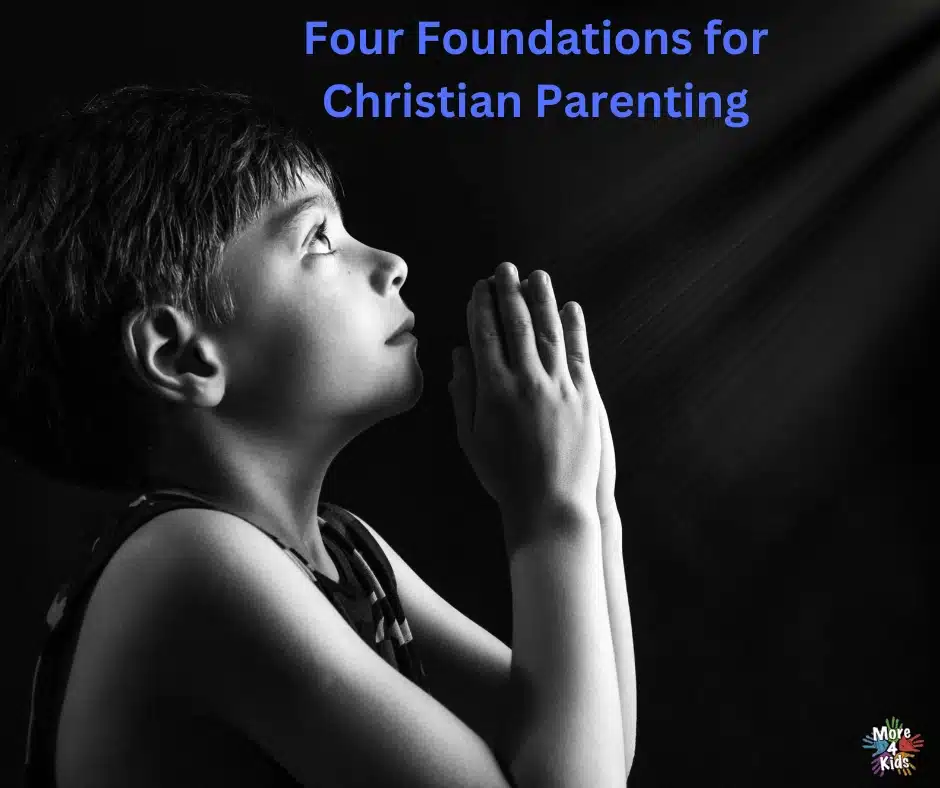When my wife and I learned that we were having our first child, it took us a while to choose a name. She wanted something unique, while I wanted something biblical. The only hard part is that biblical names are either common or difficult to pronounce. But, at a friend’s suggestion, we happily settled on Shepherd. But we also wanted to name him Shepherd for this very important reason: every time we say his name, we are reminded of God’s desire to shepherd our children for his glory.
My wife and I are both Evangelical Christians. We believe in the good news of Jesus Christ. We believe that Jesus is the Son of God, died on the cross and was raised from the dead so that we can have our sins forgiven and that we may have eternal life with Him. And, if this good news is true, would it not have major ramifications on every aspect of our parenting?
I have come to the realization that Christian parenting is not a 12-step program to raising perfect kids. Christian parenting is nothing less than parenting in light of the cross of Jesus Christ. In this article, I want to help lay the foundation of what successful Christian parenting is to encourage parents who are Christians to approach parenting in a biblical and Christ-like manner.
But here is a disclaimer: I am not writing this as a perfect parent who has parenting all figured out, and I am not writing as a perfect Christian who has the Christian life all figured out. Truth be told, my wife and I are in the hardest season as parents at this very moment. We just brought newborn twins home, and since we brought them home (and even for several weeks before they were born) our 4-year-old and 2-year-old have been difficult to parent. They sensed their worlds were going to be turned upside down (which they were), and they started to need us more and to act out to get our attention with no regard for my wife’s healing body, our lack of sleep, and all the other stress that comes with a newborn (let alone two!).
So, as a good preacher ought to do, I am going to point you to Scripture rather than anything concerning me. And I am going to look at one of the most important chapters of the Bible (both concerning parenting and in general): Deuteronomy 6. After wandering in the wilderness for forty years, the people of Israel are on the verge of entering into the Promised Land, and Moses is giving his farewell address before he dies, and here he makes four important points about faithful and biblical parenting.
1. Christian Parenting is Biblical (Deut. 6:1-2)
Table of Contents
“Now this is the commandment—the statutes and the rules—that the LORD your God commanded me to teach you, that you may do them in the land to which you are going over, to possess it, that you may fear the LORD your God, you and your son and your son’s son, by keeping all his statutes and his commandments, which I command you, all the days of your life, and that your days may be long.”
In Deuteronomy, Moses is reiterating the Law (or the Torah) to the people before they enter into the Promised Land. This Law came from the Lord himself and were his words to his covenant people to explain how they were to live as his covenant people. But notice how the Law was and ought to be communicated: from the Lord to Moses; Moses to the people; the people to their sons; those sons to their sons.
So much of the warp and woof of Christian parenting is the communication of God’s Word. God intended his Word to be communicated from parents to children, in both the Old and the New Testament eras. Paul said in Ephesians 6:4, “Fathers, do not provoke your children to anger, but bring them up in the discipline and instruction of the Lord.”
If you are looking for the foundation of what Christian parenting is, it is the Bible. That is why we cannot just boil Christian parenting down into several easy steps or principles. The Bible is not a cut-and-dry rule book, but a collection of 66 books from different authors, eras, and genres, yet with one a unified story about God’s plan to redeem sinful human beings through Jesus Christ. And, as parents, we are charged with raising our children to know what the Bible says; not just about morality but about the redemption that we need and have in Christ.
2. Christian Parenting Starts with Your Heart Before the Lord (Deut. 6:4-6)
“Hear, O Israel: The LORD our God, the LORD is one. You shall love the LORD your God with all your heart and with all your soul and with all your might. And these words that I command you today shall be on your heart.”
In the phrase “Christian parenting,” we need to remember that the word “Christian” describes the parent more than it describes the parenting style. A Christian parent must first and foremost be a Christian: one who has confessed and repented of their sin and received the free gift of grace and forgiveness through the life, death, and resurrection of the Lord Jesus Christ. They love him and submit to his lordship.
And it was the Lord Jesus who quoted Deuteronomy 6:5 and called it “The Greatest Commandment” (Matthew 22:37). Christian parenting (anything in the Christian life) is not going to flow from simply doing x, y, and z, but rather from moms and dads loving the Lord with all their hearts, souls, and might.
This perhaps is the hardest part, because no one does love the Lord with all their heart. We all sin and fall short of the standard God sets for us (Romans 3:23). And, in a lot of ways, our children bring out our sin. They bring out our frustration, our selfishness, our anger, our demand for perfect obedience. And it is in those times that we need to confess our sins, knowing that God is faithful and just to forgive us (1 John 1:9), and that gracious love in turn moves us to love God and love others (1 John 4:19).
3. Christian Parenting is Intentional (Deut. 6:7-9)
“You shall teach them diligently to your children, and shall talk of them when you sit in your house, and when you walk by the way, and when you lie down, and when you rise. You shall bind them as a sign on your hand, and they shall be as frontlets between your eyes. You shall write them on the doorposts of your house and on your gates.”
A wise man once said, “Of making many books there is no end” (Ecclesiastes 12:12), and that is true of parenting books. That is not to say that they do not have their place, but Moses says here that faithful parenting takes place by communicating God’s Word in the mundane, everyday life events—sitting at the table, rides in the car, going to sleep and waking up. They ought to be like our clothing and the décor on our walls (but, more importantly, worn on our hearts).
It is important that our parenting does not suffer from “paralysis by analysis.” If we have the Bible, which is “breathed out by God and profitable for teaching, for reproof, for correction, and for training in righteousness” (which are great goals for parenting, are they not?), then we need to be communicating that Word regularly and intentionally to our children.
It need not be formal, like trying to keep your kids still for an hour-long Bible study, but by injecting Biblical truth at every opportunity. When your inquisitive children ask you a question and life or the world, don’t just brush it off! If you can, point them to God or the Bible for the answer.
In fact, Moses tells us to do just that.
4. Christian Parenting Emphasizes the Grace and Mercy of God (Deut. 6:20-25)
“When your son asks you in time to come, ‘What is the meaning of the testimonies and the statutes and the rules that the Lord our God has commanded you?’ then you shall say to your son, ‘We were Pharaoh’s slaves in Egypt. And the Lord brought us out of Egypt with a mighty hand. And the Lord showed signs and wonders, great and grievous, against Egypt and against Pharaoh and all his household, before our eyes. And he brought us out from there, that he might bring us in and give us the land that he swore to give to our fathers. And the Lord commanded us to do all these statutes, to fear the Lord our God, for our good always, that he might preserve us alive, as we are this day. And it will be righteousness for us, if we are careful to do all this commandment before the Lord our God, as he has commanded us.’”
This hypothetical child asks his father why they do all the religious things that they do (and, if you read Deuteronomy all the way through, it is a lot!). The father could have said, “That’s just what we do.” “I don’t know, ask your mother.” “It doesn’t matter, just do it.” He explains the “why” in glorious detail. “We do these things because the Lord saved us from slavery in Egypt, and we do it for his glory and our good.”
As a Christian parent, the most important thing we have to communicate to our children is the gospel of Jesus Christ, who he is and what he did on the cross. All of the instructions that we are given have the gospel as the foundation. So, if your child asks “Why? Why do we go to church every Sunday? Why do we pray together? Why do we read the Bible?” (or a question that is even harder to answer in a political and cultural climate like we are in today), you can tell them why. “Because Christ died on the cross to forgive us of our sins and have eternal life with him, and he has shown us how to live a life that honors and glorifies himself as our king until he returns or calls us home.”
Listen to Pastor Ricks sermons at Grace Fellowship Church.












Add Comment